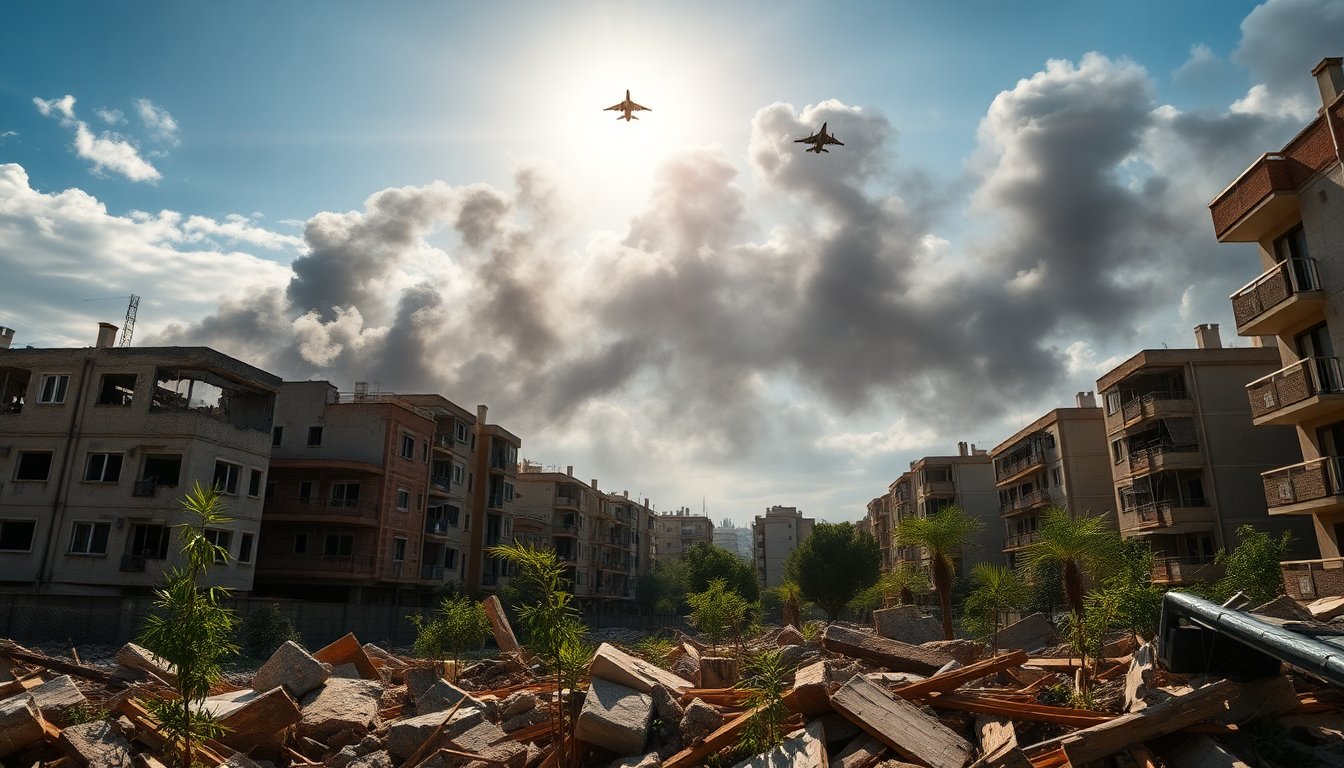Table of Contents
In a significant escalation of military activity, the Israeli Defense Forces (IDF) launched an airstrike on Sunday targeting a member of the Iran-backed Hezbollah militia in the Lebanese capital, Beirut. This latest operation follows a period of increasing tensions and military maneuvers in the region, reflecting Israel’s ongoing commitment to counter perceived threats from Hezbollah.
Witnesses in the southern suburbs of Beirut reported the sound of aircraft overhead, followed by a loud explosion that sent residents fleeing from their homes in fear of additional strikes. According to medical sources, at least two dozen individuals sustained injuries and were promptly transported to local hospitals for treatment. The situation remains fluid as the aftermath of the attack unfolds.
Israeli military objectives and Hezbollah’s response
Israeli Prime Minister Benjamin Netanyahu addressed his cabinet prior to the strike, emphasizing the government’s unwavering resolve to combat what it describes as terrorism. He stated, “We will continue to do whatever is necessary to prevent Hezbollah from re-establishing its ability to threaten us.” This declaration underscores Israel’s broader strategy aimed at thwarting Hezbollah’s military capabilities in southern Lebanon.
Since last November, Israel has escalated its military operations in the region, conducting a series of airstrikes aimed at dismantling Hezbollah’s military infrastructure. The Israeli government has accused the militia of attempting to rearm and strengthen its position along the border since the U.S.-backed ceasefire agreement was established. However, Hezbollah maintains that it has adhered to the stipulations set forth in the ceasefire agreement, which included the withdrawal of its forces from the border area.
The implications of continued military actions
The recent airstrikes form part of a broader pattern of military engagement from Israel, which has seen an uptick in operations targeting Hezbollah in response to perceived threats. Over the past week alone, the IDF has claimed responsibility for several attacks, resulting in the elimination of key figures within the Hezbollah organization. This ongoing conflict raises concerns about the potential for further escalation and the implications for regional stability.
In a separate incident, the IDF reported that it had mistakenly fired at United Nations peacekeepers during operations in southern Lebanon. An investigation is underway following the incident, which highlights the precarious nature of military operations in a densely populated and politically charged environment.
Geopolitical ramifications and future outlook
The tensions between Israel and Hezbollah are further complicated by broader geopolitical dynamics, including discussions around Palestinian statehood and ongoing negotiations facilitated by the United States. As the UN Security Council deliberates on resolutions pertaining to the situation in Gaza, Israeli officials remain steadfast in their opposition to any proposals that could lead to the establishment of a Palestinian state.
Netanyahu has reiterated that Israel’s stance on Palestinian statehood remains unchanged, asserting that his government will resist any efforts that threaten Israel’s security interests. The U.S. has proposed a plan for post-war Gaza that includes measures aimed at rebuilding and stabilizing the region; however, Israeli leaders have expressed concerns over any aspects of the plan that may imply future Palestinian sovereignty.
Local perspectives on the conflict
Residents in the affected areas are grappling with the realities of ongoing military operations and the persistent threat of violence. Many have expressed feelings of despair and frustration, recounting the devastation that the conflict has wrought on their lives. One resident noted, “We barely managed to repair one room in our destroyed house, and now the bombing has started again. They don’t even give us a chance to breathe.” Such sentiments encapsulate the human cost of the military engagements and highlight the urgent need for a lasting resolution.
The continued airstrikes and military operations underscore the fragility of the current ceasefire and the precarious nature of the situation in the region. As both sides prepare for potential further confrontations, the international community watches closely, hoping for a diplomatic solution that can bring lasting peace to a region long marred by conflict.


